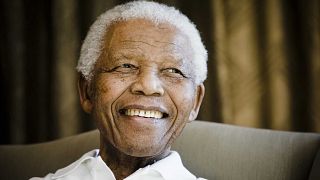Refugees
Stranded at the Border with Nowhere to Go
The East African nation - a leader on the continent in terms of welcoming refugees, is known for its hospitality. According to the United Nations High Commissioner for Refugees, about 1,400,000 people have found refuge in the country.
The capital city Kampala appears to have put in place a mechanism for the rapid integration of refugees into Ugandan society and many of the newcomers eventually become full members of their host communities.
Those who cross the border at an early age are raised in Ugandan schools — promoting a healthy fusion of double culture and adequately preparing the young refugees to thrive in their new home.
Ganiko Jerry, a southern Sudanese refugee, shares his positive experience with the local educational system, "The education part I received from Uganda really helped me a lot."
Overcoming Integration Challenges
It is in the West Nile region, where most of the refugees live that all is not rosy at the camps.
Access to health care, drinking water and electricity is a problem. The COVID-19 pandemic has only compounded an already challenging situation.
For 75-year-old John Joh Kuir who arrived more than 20 years ago, settling into a dignified new life has not been a walk in the park. The main challenge for this head of the family is to provide for his beloved dependents.
The refugees say that the government ensures their security, but that this is not enough. They want enough arable land to cultivate in order to reduce their dependence on aid and establish truly independent, sustainable and more satisfactory lives for their families in Uganda.











01:52
UN's crucial humanitarian aid work faces a clouded future amid cuts in funds
02:00
Refugees in Kenyan camp face hunger after USAID funding freeze
Go to video
A decade on, Lesbos still bears the scars of the refugee crisis
01:37
Sudan faces rapidly-spreading cholera outbreak, 1000 daily cases in capital
01:11
'Devastating milestone': More than 4 million people have fled Sudan since start of civil war
01:12
Cameroon tops list of world's most neglected displacement crises